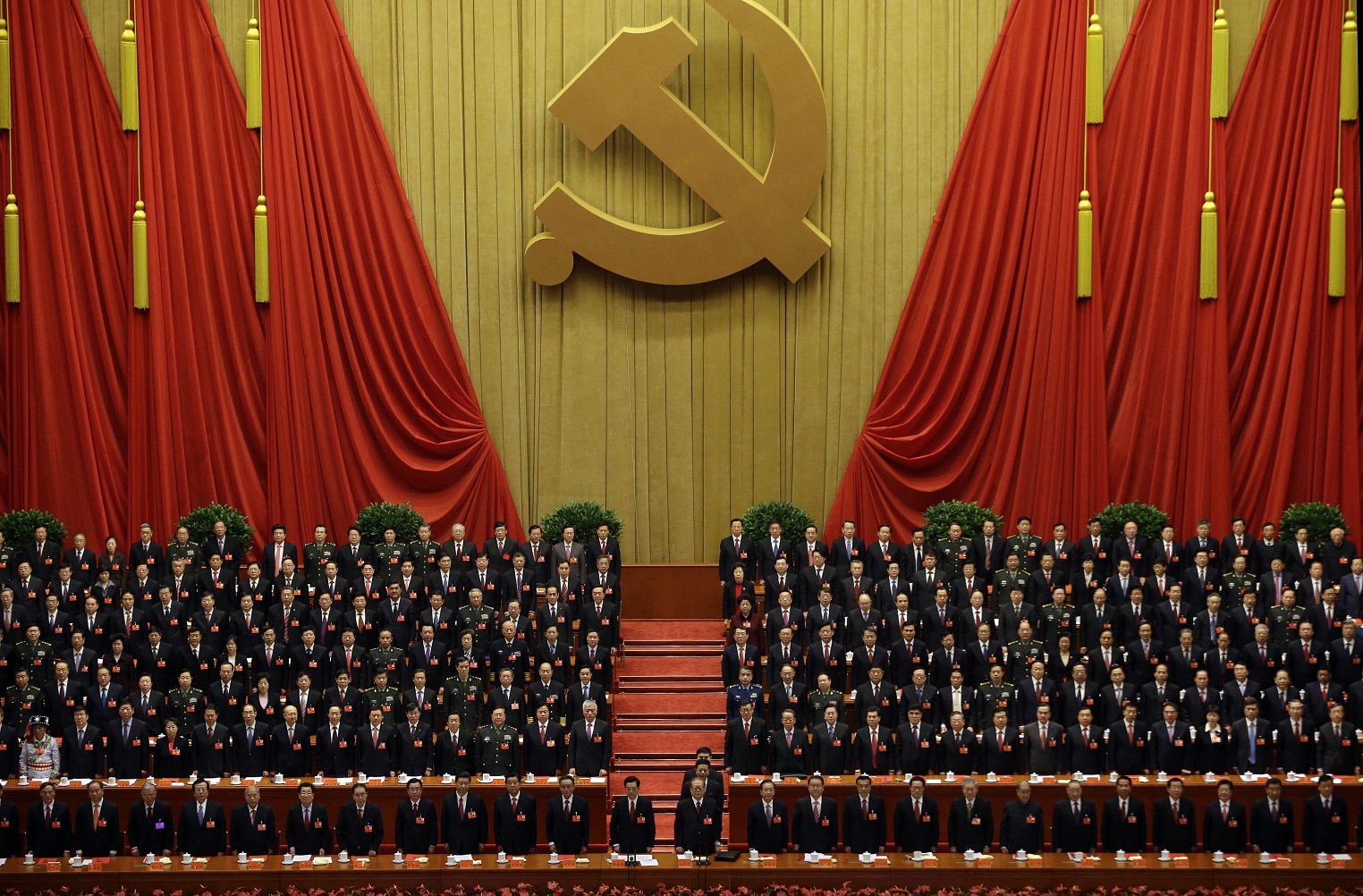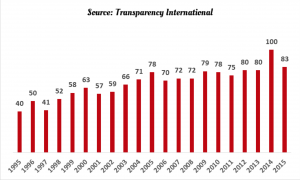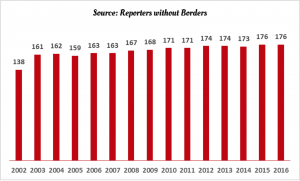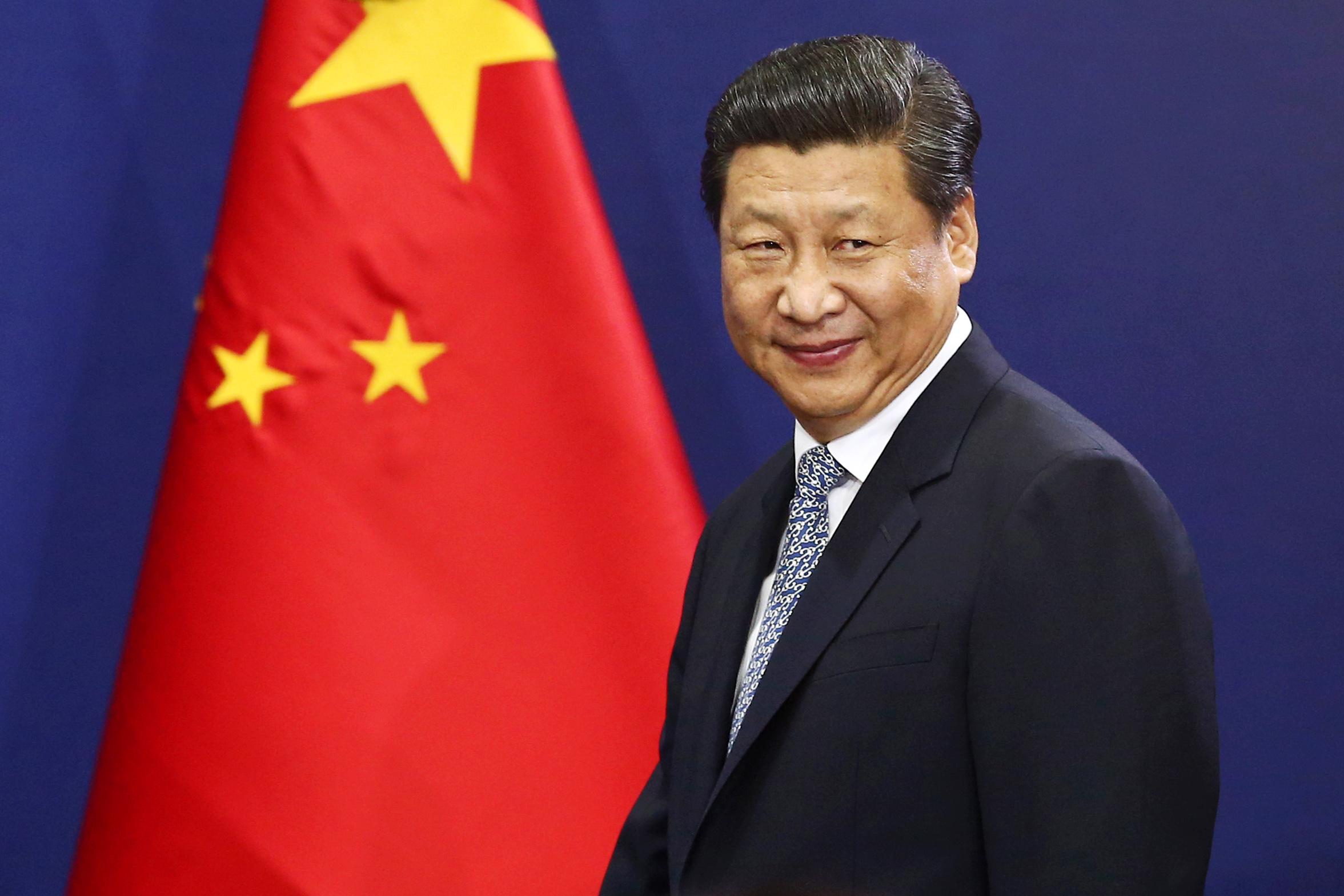Chinese Domestic Politics: A Millenary Swing Between Legalism and Confucianism
Understanding Chinese politics is a matter of the utmost importance in terms of geopolitical, economic, and strategic stakes, especially given that the weight of the Middle Kingdom on the world stage is getting heavier day by day at the expense of Western countries. What’s better then than looking back into China’s history that reveals useful clues that can be decoded to understand the present and to help anticipating the future?
China’s history is captivating. When we study the second largest economy in the world, we discover an elusive China with many faces (traditional, imperial, struggling with modernism tensions, industrial, at the school of the World, modern, paradoxical…). At the end of the Qing Empire, two important events occur: Confucius apotheosis and the inauguration of the Chinese Republic in Nanking by Sun Yat-sen. It was followed by a period of instability and wars until Mao Zedong came out the winner in 1949 by adopting a Legalist strategy, and thus inaugurating the People’s Republic of China.
However, Legalism without Confucianism led China to a critically sad state while the World was progressing and thriving (the example of its neighbors Japan and South Korea is enlightening). Later, Deng Xiaoping gradually reintroduced Confucianism (strongly fought by Mao), allowing China to open up to the world and to become richer year after year (China’s millionaires and billionaires numbers are regularly making the headlines for nearly two decades now). As a result, the foreign observers, expecting a continued increase in freedom and further opening up of China to the rest of the world, were taken by surprise when Xi Jinping broke this trend through a resurgence of censorship and a battle against corruption. The question then that arises is: How to explain this sudden change in China’s domestic politics?
“Whether it’s the theories that you learned in business school or the tactics and strategies that have served you so well in other markets, you will need to adapt – and in some cases discard – a lot of what you know once you get to China.” (Plafker, 2007: 124)
To answer this complex question, we do not want to provide a short-term interpretation using Western theories, as they have their limitations when applied to China. We will provide rather, a long-term interpretation using cultural values inspired from China’s history beginning with the first Chinese Empire (Qin Dynasty in 220 BC), and continuing through to the present day. These values are represented by Legalism and Confucianism, two Chinese millenary philosophical doctrines.

Chinese Communist Party top leaders stand up while “the Internationale,” the international communist anthem, is played during the closing ceremony of 18th Communist Party Congress held at the Great Hall of the People in Beijing, China, Wednesday, Nov. 14, 2012. (AP Photo/Ng Han Guan)
On one hand, Legalism is a militaristic doctrine based on pragmatism. To achieve his goals, the Prince manipulates people and relies on structures (bureaucracy) and on men who are devoted to him (men who are selected not for their virtues but for their ability to blindly apply the law). Allegiance then goes to the Prince first who strives to use sanctions and rewards in a uniform manner regardless of the social status of the individual; this equality in front of the law is against the Confucian hierarchical society.
On the other hand, Confucianism is a patriarchal/political clan, a moral philosophy whose aim is to promote the citizens’ well-being expressed in terms of harmony, order, security, happiness, education and wealth. It preaches the action while maintaining the hierarchical structure of the society. Allegiance is to the family at the expense of the Prince/State.
This said, since the Middle Kingdom’s birth, it has seen a succession of eight1 dynasties (Qin, Han, Sui, Tang, Song, Yuan, Ming, and Qing) interspersed with periods of wars (Spring and Autumn Period, Six Dynasties, Five Dynasties and Ten States). Like Zheng (2010), we believe that the Chinese Communist Party (CCP) is a dynasty and its members represent the mandarins.
While reading the history of Imperial States management, the cyclical history of the rise and fall of Chinese Imperial States can be understood by the antagonistic interplay of Legalist and Confucian cultural values. During the rise stage, the Imperial State is managed and controlled by the Legalist mode while during the fall stage, management and control are following the Confucian values which attribute the primacy to personal selfish interests over the interests of the State. This inexorable play of opposing politics inspired by Legalism and Confucianism end up ruining each dynasty and the new one must renew its management2.
In other words, the tandem Legalism-Confucianism acts on two levels: inter-dynasties (by explaining the dynasties changeover and their dynamics) and intra-dynasty (by explaining how policies change depending on the Prince). It is easier then, to understand why the reforms of Deng Xiaoping are impregnated by the Confucian mind with the rehabilitation of Confucius (an award in his name in 2010) while the reforms of Xi Jinping are impregnated by the Legalist mind. Here is how the story unfolds:
In the recent history of China since the fall of the Qing dynasty in 1911, the chaos created by the Warlords Era, Nanjing Decade, Chongqing Era and the civil war was followed later by the success of the Legalist Mao Zedong and his revolutions. This led China into a state of poverty. After Mao’s death in 1976, Deng Xiaoping reinstated Confucianism, and his policies enabled China to open up to the world and grow to become a key player on the world stage.
With the reintroduction of Confucianism, the allegiance now lies with the family at the expense of the State. Corruption is rife with the enrichment of the Chinese and this is where the Chinese-legalist-obedience leaders react negatively3. When the Chinese State rages against corrupt people (including officials), it means that the CCP Legalism is threatened by the Confucian morality. This is where Xi Jinping enters the picture, a leader whose values are typically Legalist.
Actually, when Xi Jinping became president in March 2013, many were hopeful that a wave of change would sweep the country, owing to his family heritage and life experience. Three years later, instead of pushing China and its institutions towards liberal reforms as expected, he disappointed many Chinese and foreign observers. Having lived under Mao’s rule, everyone thought that he would understand the cult of personality, the dangers of the Party dictatorship, and power concentration in the hands of very few key people. In fact, Deng Xiaoping had already warned about this in the eighties.
On the contrary! Xi Jinping, with the help of his trusted-tightly-knit circle of aides, is exercising power Mao style (to a certain point), insisting on “absolute loyalty” as reported by Cheng Li (2015) quoting Li Zhanshu (director of the “all-powerful” General Office of the CCP Central Committee): “Xi’s protégés occupy crucial positions in the bureaucracies responsible for security, for supervising official careers, and for propaganda. Unlike powerful staff members in recent previous administrations, his aides avoid contact with foreigners and even with officials outside Xi’s personal circle.” (Nathan, 2016)
On one hand, Xi’s concentration of power appears in its actions: leading the Party, the State and the military hierarchies alone and with an iron hand; chairing several important policy-making groups; tightening its hold on the Army and reorganizing it to suit his interests; warning Party members and Academics to watch their discourses; demanding from everyone an ideological conformity; controlling the economy; carrying out political repression (even worse for Tibetans and Uyghurs); modifying the bureaucracy machine to fit his interests; frightening the media and officials…
Since Reporters without Borders’ first report in 2002, the annual analysis shows that China’s ranking in terms of Freedom of the Press is getting worse year after year even under Xi Jinping’s rule. This is the first empirical indicator that supports our idea. Today, China’s rank is 176 out of 180 countries. It regressed by 38 positions in 14 years. Xi Jinping keeps a tight leash on the press and controls everything through his loyal henchmen.
On the other hand, Xi Jinping’s power concentration is fueled by the propaganda machine portraying him as a humble man, extremely gifted, and an “ethical” leader like a knight in shining armor fighting corruption. It strengthened the cult of personality similar to the one Mao was cultivating: In the first 18 months following his ascension to the Party’s leadership, Xi Jinping was mentioned by name in the People’s Daily newspaper 4725 compared to 2001 for Jiang Zemin, 2425 for Hu Jintao, and 7000 times for Mao in the 18 months after the 9th Party Congress in 1969 (Hall, 2016).
This behavior caused a rift within the Party, some of whose “loyal” members asked anonymously through the Internet for his resignation. This request was quickly removed and the response was the intensification of the control: more repression and censorship. The rift continues to get wider and wider with other issues related to China’s foreign policy, in particular over the South China Sea and East China Sea.
Recently, this cult of personality was pushed too far, according to certain members of the Party, when a beetle discovered in Hainan was named for Xi Jinping. A comparison between him and the beetle was made by the discoverer Mr. Wang: the beetle attacks rotten wood while Xi attacks rotten people (fighting corruption). However, some members of the Party did not like this and used the Great Firewall to block it within China (Tatlow, 2016).
The corruption that Xi Jinping is officially fighting is undermining China at all levels. It’s a gangrene that can trace its roots back to 1775 when the first notable progress of corruption was registered in China; following the creation of the Supreme Body of the Centralizing Government (Junjichu) in 1729, a time when the last ruling dynasty, the Qing (1644-1911) was at its beginning.
Moreover, the fact that the current Chinese governmental structure is very complex and obscure (many links at all levels are tangled, scrambled and unclear) does not help in the fight against this canker: governmental corruption was in the top 5 of the Chinese society concerns according to a survey done by The Chinese Academy of Social Sciences (Chine Informations, 2011). Furthermore, with respect to the Panama Papers scandals, Mossack Fonseca revealed that many prominent Chinese families including Xi Jinping’s brother-in-law have/had secret offshore companies. As expected, the official media kept quiet and censorship, as a rule, has been applied by the president and his circle. As usual, the Party through a spokesman made a statement in its newspaper-owned Global Times (the English version of it) accusing the capitalist West of trying to undermine the communist Chinese political elite.
 According to Transparency International, China is among the most corrupt countries in the world and it is not getting better under Xi Jinping’s rule despite his reputation as a corruption fighter. The ranking of 175/177 countries shows that China’s ranking has doubled in 20 years, and it has worsened under Xi Jinping’s control. This is the second empirical indicator that supports our idea.
According to Transparency International, China is among the most corrupt countries in the world and it is not getting better under Xi Jinping’s rule despite his reputation as a corruption fighter. The ranking of 175/177 countries shows that China’s ranking has doubled in 20 years, and it has worsened under Xi Jinping’s control. This is the second empirical indicator that supports our idea.
Actually, one of China’s greatest problems related to corruption and censorship is one of political and social/individual freedoms. The revolution and the uprising in the country are acts consistent with Confucian precepts. Confucianism is a sword of Damocles: it helps to legitimize the domination of the rulers, as long as they ensure harmony and peace and, at the same time, it allows the governed to revolt if the rulers accept disunity, injustice and disorder.
China is still incarcerating the 2010 Nobel Peace Prize, Liu Xiaobo, because he dared to call for political reforms and the end of communist single-party rule. To counteract the West, China established the Confucius Peace Prize. The Prize is awarded annually, and a winner is chosen according to its interests: in 2011, it was given to Vladimir Putin, confirming the cultural values represented by this prize to its rival Nobel. Granting The Confucius Prize to a (former) new president of Russia is not without symbolic gesture, nor without strategic purpose. In fact, in order to quench its thirst for energy, China is served by pipelines (2 600 miles) connecting the oil fields in eastern Siberia to China. China does not want to be dependent on the Gulf countries (mainly Iran and Iraq), but it wants to diversify its suppliers and be protected against the Middle Eastern volatility… Especially nowadays given the oil crisis, the shaky geopolitical situation in the Middle East with Saudi Arabia and Iran clashing, and ISIS looming in the background.
Furthermore, China is not immune to an “Arab Spring”, a phenomenon linked to social media that hit throughout the United States, Britain, Russia and even China. Playing on nationalism and cultural values as a rule, the former Chinese president Hu Jintao, who was quoted by the CPC journal (Seeking Truth) has already drawn attention to the “hostile” powers wanting to westernize China. He has spoken of Westernization and division of the Chinese that must be warded off, stating that the West is strong and China is weak (a comment typical of Sun Tzu’s strategy to reassure the enemy). Thus, according to him, the Chinese cultural values should prevail and the media and Internet controls need to be strengthened. In other words, China must prevent an Arab Spring by censoring all means. Moreover, police repression is hitting villages in southern China (e.g. Wukan), microblogs are being cracked down upon regularly, while a new controversial cybersecurity law is on the verge of being applied.
Unfortunately or fortunately depending on which perspective is used, nobody saw all this coming until it was too late: Xi Jinping, so different from his predecessor Hu Jintao, pushed China towards a path that no one has foreseen. With still no multiple parties (even though officially there are eight of them, but all of them are under the ruling of the CCP), Chinese citizens are now under more scrutiny than ever. Through sophisticated technologies, including Internet and social networks, the CCP have been allowed to create a permanent threat (conspiracy theory) to justify his actions.
The Yin and Yang are in action within the CCP: the famous “harmony” is being tested once again and stretched to its limits. The current political climate is in turmoil. The Party has come to a crossroads. After 67 years of going from communism à la Mao to Xi Jinping’s “communism”, China has passed by a more relaxed form of communism.
Indeed, Deng Xiaoping’s reforms that pushed China towards more openness and adaptability are now being undermined to a certain point. The Party is divided. Clans are created: the old generation vs. the new one; those for Xi Jinping and those against him; Xi Jinping’s close and loyal circle vs. the others. Tensions between the government levels (central vs. local vs. municipal) exist, and favors are exchanged (guanxi). This is what helps maintain a certain balance… but this situation will remain until when? Especially when the “red” aristocracy sends women and children abroad, transfers their fortune overseas and seeks Western passports just in case…
Should the millenary trend (swing between Legalism and Confucianism) continue, Xi Jinping will continue with his policies and Legalist behavior. In other words, the Legalism will keep fighting the Confucianism and will be getting stronger day by day until a new President/State/Government emerges… Unless an Arab Spring occurs and scrambles everything. Two scenarios then can be drawn about the future:
- If China has a Legalist successor in the same vein as Xi Jinping, this means that the majority of those who elected him are Legalist. China will then know more censorship and tighter policies.
- If China has a Confucian successor, this means that the majority of those who elected him are Confucian, and do not accept the actions taken by Xi Jinping. They would prefer to water down the presidency with Confucianism in order to “soften” the politics.
To sum up, History sheds some light about the current Chinese domestic politics and gives us clues about the future. Time will tell what will happen…
Notes
References
CHINE INFOMATIONS (2011). “Top 10 social concerns in China in 2011” (Top 10 des préoccupations sociales en Chine en 2011), Dec.29th.
ER-RAFIA, F.-Z. (2015). IS CHINA THE NEW JAPAN OF THE 21ST CENTURY? (Doctoral thesis), 670 p.
GERNET, J. (2005). LE MONDE CHINOIS (3 books), Paris: Armand Colin.
HALL, C. (2016). “Is Xi Jinping Cultivating a Personality Cult? Or Just a Personality?” (Forbes), April 26th.
NATHAN, A.J. (2016). “WHO IS XI?” (The New York Review of Books), May 12th.
PLAFKER, S. (2007). DOING BUSINESS IN CHINA, NY: WBB, 292 p.
TATLOW, D.K. (2016). “BEETLE IS NAMED IN HONOR OF XI JINPING, BUT CHINA AIMS TO SQUASH THE NEWS”, (The New York Times), July 12th.
ZHENG, Y. (2010). THE CHINESE COMMUNIST PARTY AS ORGANIZATIONAL EMPEROR – CULTURE, REPRODUCTION AND TRANSFORMATION, NY: Routledge, 251p.

This article is published under a Creative Commons Attribution-NonCommercial 4.0 International licence.


